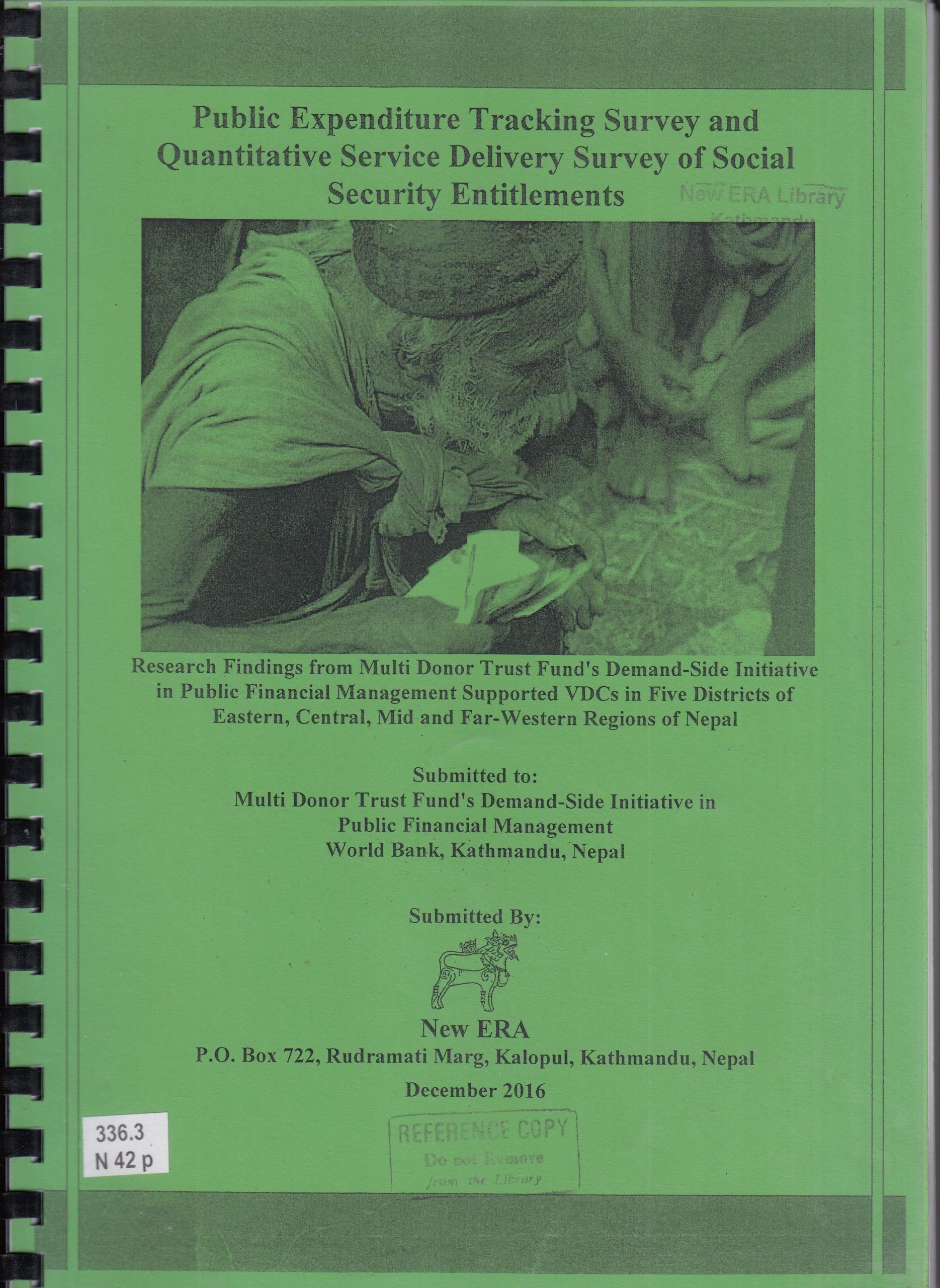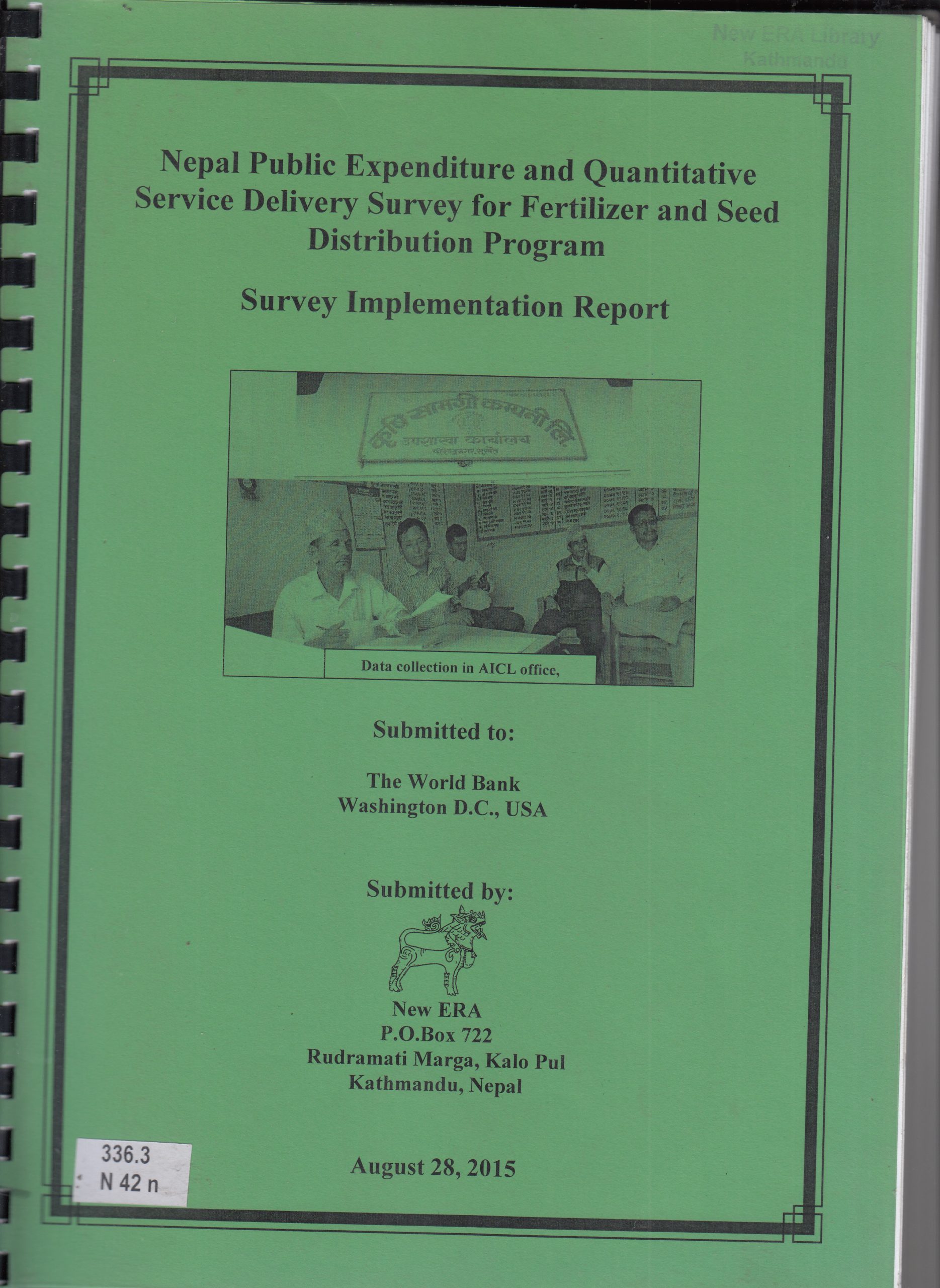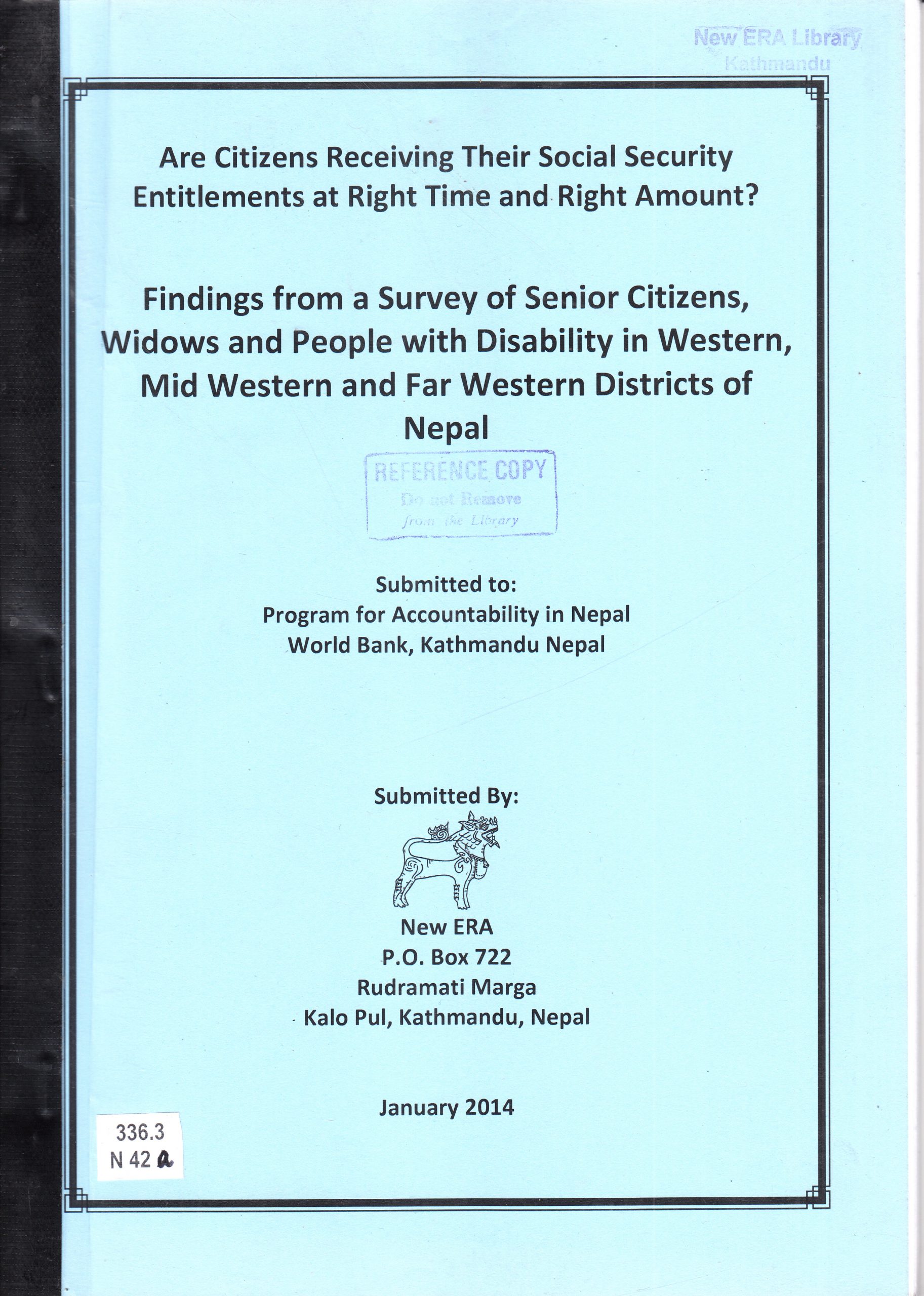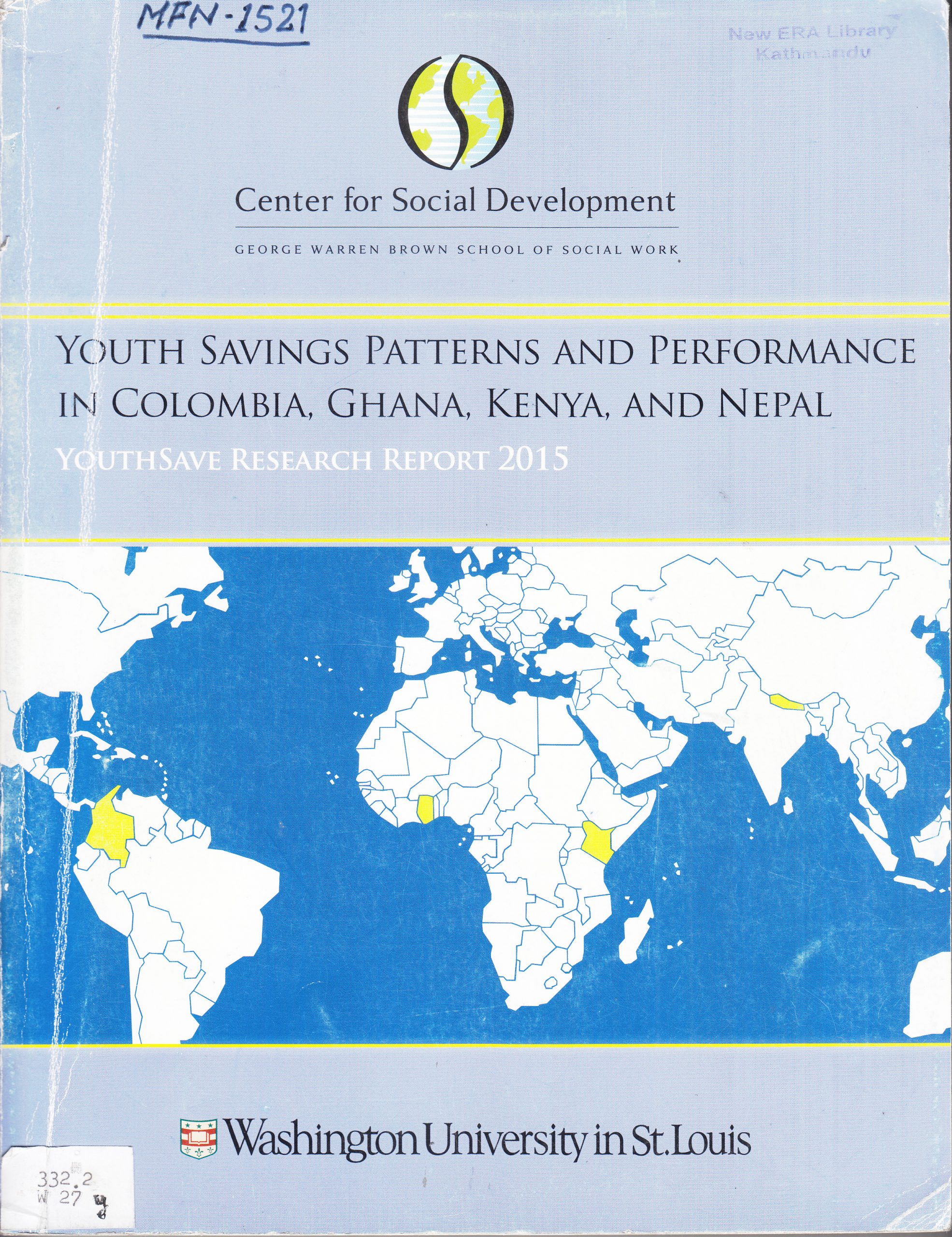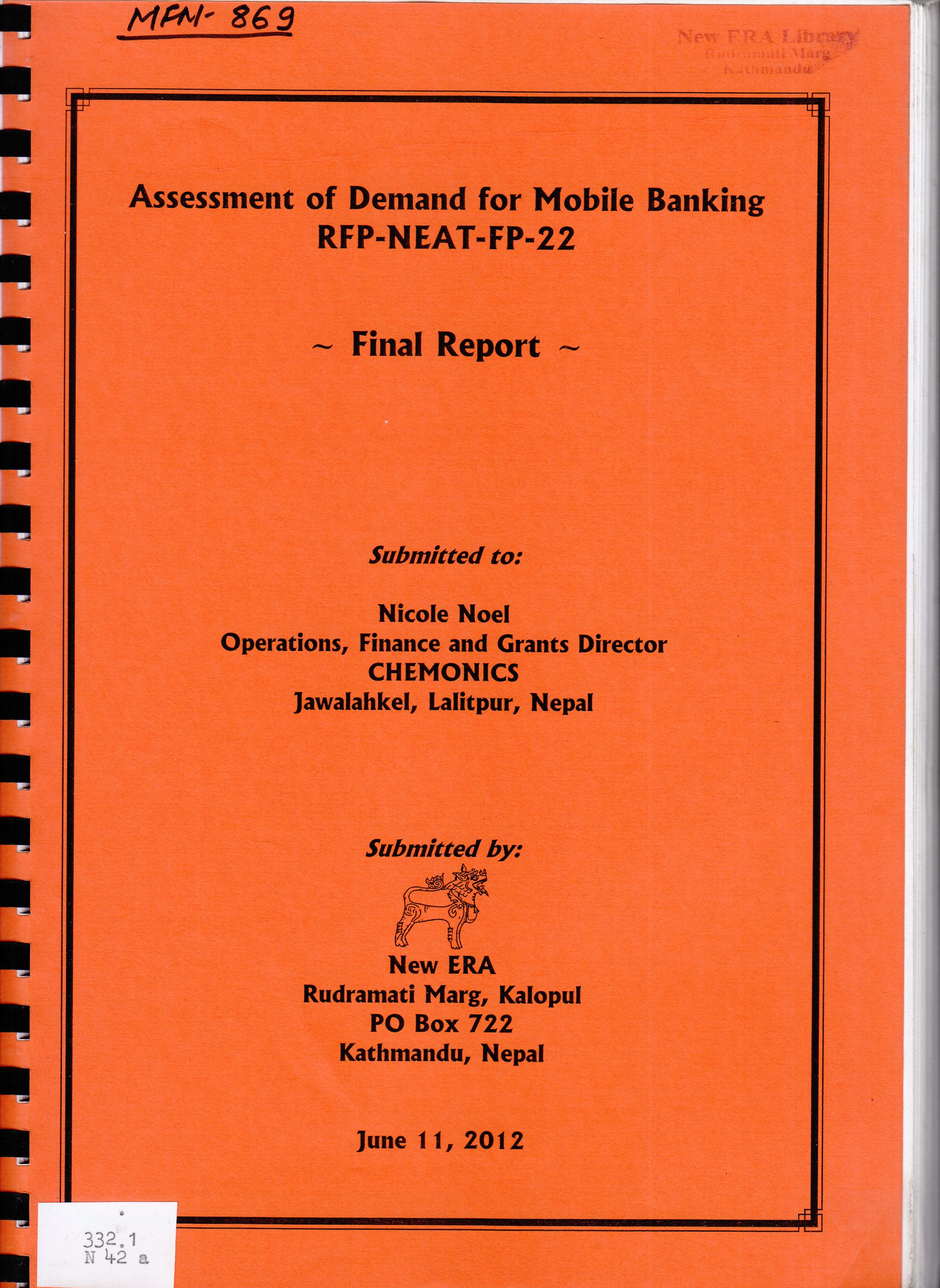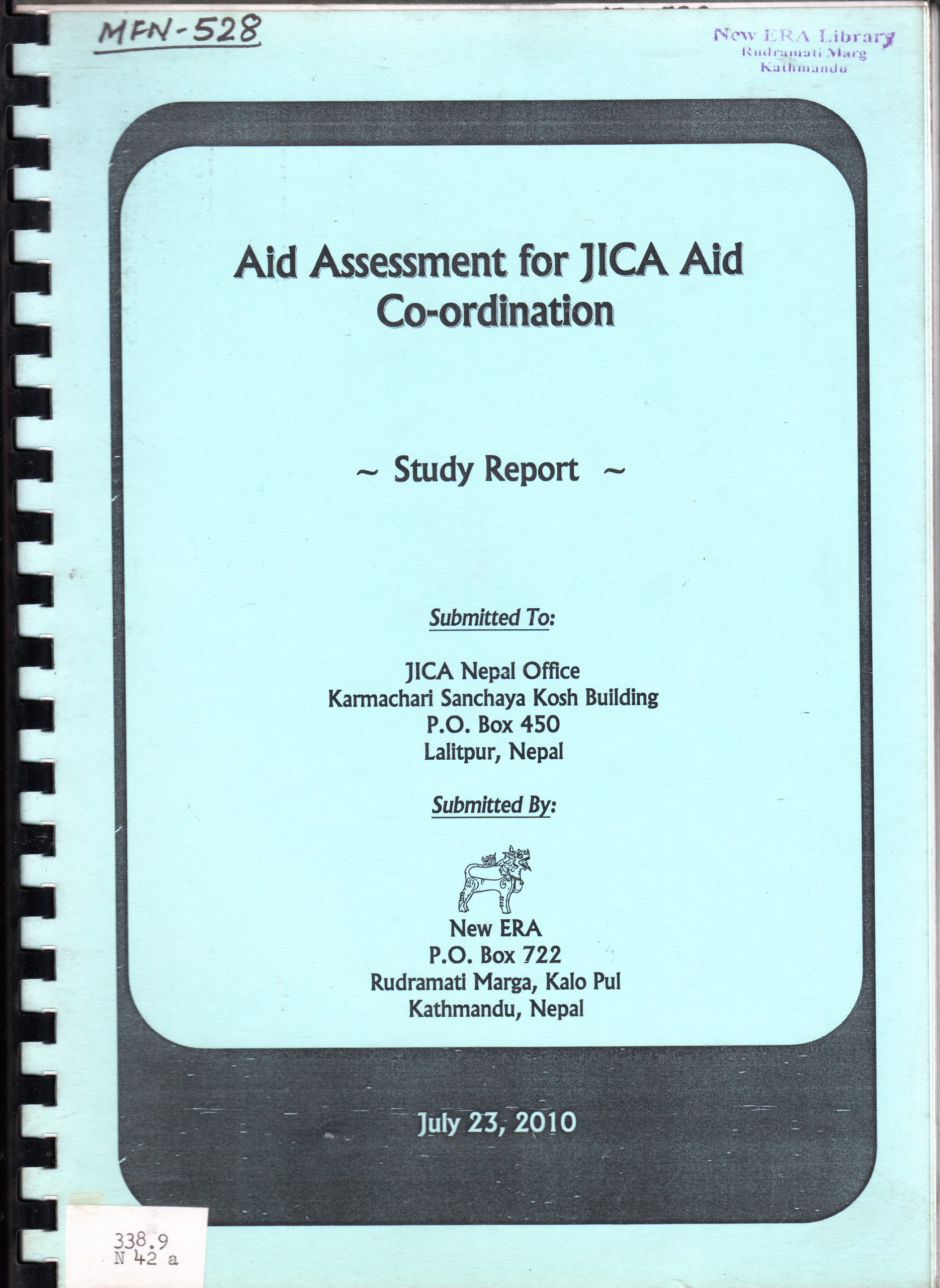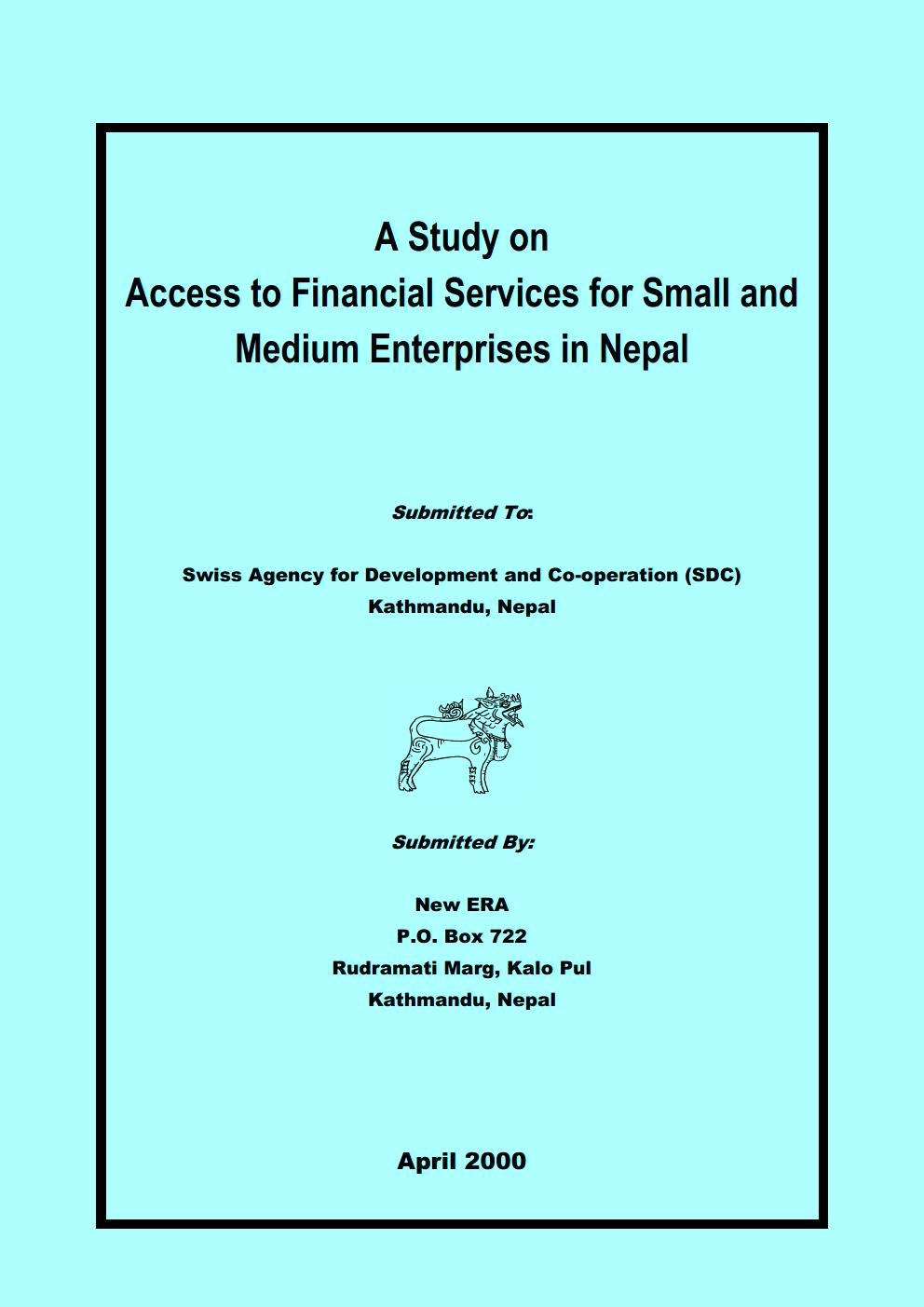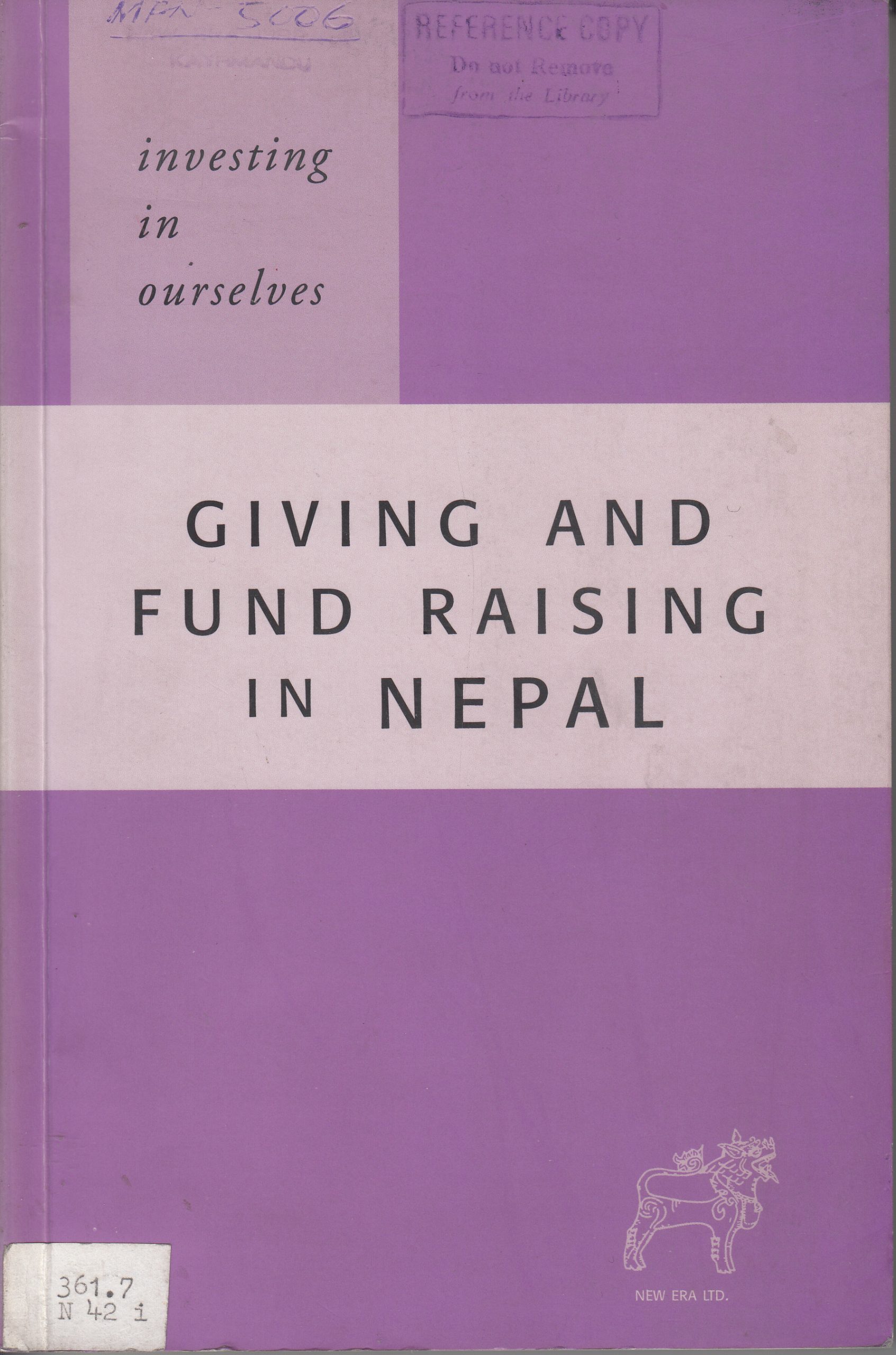This study is one of the activities of the Multi Donor Trust Fund demand-side initiativein public financial management. This survey was carried out to generate evidence based feedback on an important program as well as an important service rendered by the VDCs and expected to raise awareness of Social Security Entitlements (SSE) recipients and their families about their entitlements and processes to access them. The study assessed the extent of leakages and leakage points; exclusion of eligible person and reasons; the social impacts of SSE payments on beneficiaries.
Report Type: Finance
Nepal Public Expenditure and Quantitative Service Delivery Surveys for Fertilizer and Seed Distribution Program
The Government of Nepal provided a huge amount of subsidies under Fertilizer Program, and the Seed Program, targeted to smaller farmers and intends to increase their access and use of improved inputs that enhance to increase productivity and production of major cereal grains. This survey was to analyse the flow of subsidy from the
source to the beneficiaries. The study assessed existing eligibility rules and access of targeted farmers to subsidized inputs; effectiveness of the existing distribution mechanism; leakage of subsidized inputs to non-targeted farmers; and effectiveness of existing governance and oversight arrangements.
Are Citizens Receiving Their Social Security Entitlements at Right Time and Right Amount
Program for Accountability in Nepal (PRAN) is a multi donor initiative to improve accountability in the public financial management of the Government of Nepal including both service delivery or supply side and the demand side. This study was to improved accountability of VDCs by identifying areas where gaps and lapses occur in SSE distribution and to provide a snapshot of the current accountability status using right time and right amount by citizens eligible to receive these in the three categories, as key indicators.
Youth Savings Patterns and Performance in Colombia, Ghana, Kenya and Nepal
Supported by the Master Card Foundation, Youth Save was a consortium project of four organizations, Save the children, the Center for Social Development at Washington University in St Louis (CSD), the New America Foundation, and Consultative Group to Assist the Poor (CGAP). It is a multi-country learning project to encourage low income young people aged 12- 18 in selected developing countries to save through formal sources for their better future. The project was being implemented in Nepal, Colombia, Kenya and Ghana since 2010 and planned to continue up to 2014. Save the children International (SC), Bank of Kathmandu (BoK), New ERA and Local NGOs are involved in implementing the Youth Save program in Nepal. The basic objectives of the program are (i) Increase financial literacy among youth (age 12-18 years); (ii) Increase accessibility of financial institutions to them and (iii) Educate youth about savings and increase saving habit among them. New ERA was involved as a national Research Partner (RP) of the Center for Social Development at Washington University in St. Louis, USA in this initiative.
Assessment of Demand for Mobile Banking
Nepal Economic, Agriculture and Trade Activity (NEAT) program was designed and implemented with financial assistance of USAID in 14 districts of Western and Mid-western Development Regions of Nepal. Strengthening microfinance policy and institutions to increase the access of women, poor and disadvantaged to financial services was a component among the five component of this program. The project feel clear need ‘The Mobile Banking Market in Nepal’ for a channel which allows Nepalese to access financial services more easily. This study was to assess the uses mobile phone, financial uses and demands of target population. The study also identified the areas that could potentially be addressed through mobile and branch-less banking channels.
Public Expenditures Tracking Survey (PETS)
Public Expenditure Tracking Survey (PETS) was conducted with assistance from Adam Smith international (ASI),funded by DFID in order to identify and address problems and weaknesses in systems of public expenditures, transfer and service delivery so as to help the government ensure that allocated public resources effectively reach their intended beneficiaries. PETS also sought to reveal corruption/misutilization of funds and detect the exact location of leakages. The survey data were obtained employing both quantitative and qualitative methodologies.
Aid Assessment for JICA Aid Coordination – Study Report
The external assistance plays a vital role in the development of Nepal. About 60 percent of the development programs are being financed by external assistance. Japan is the must important financial donor of Nepal. This study was being carried out to review the development assistance provided by Japan International Cooperation Agency (JICA) to Nepal during 2000s. The study analyzed the aid policy, strategy, general trends, modalities, and sectoral distribution of program approaches of the largest development partner agencies such as JICA, The World Bank, ADB, DFID, GTZ, SDC, DANIDA, UNDP, in besides the neighboring countries China and India.
A Study on Access to Financial Services for Small and Medium Enterprises in Nepal
This study establishes a clear picture of the formal and informal finance sector in relation to financial services
available for Occupational Skills and Enterprises Development (OSED) in Nepal. The study identifies possible partner institutions for implementing financial services. It also assesses existing financial policy, legislation and guidelines important to OSED.
Investing in Ourselves: Giving and Fund Raising in Nepal
This study builds awareness of successful methods of fund raising employed by Asian NGOs and identifies innovative best practices; increases understanding of the need for transparency and accountability; and increases the capacity of the NGOs to mobilize the resources. The study also documents Asian fund raising experiences in order to supplement or replace imported models and experiences for use in local training and also demonstrates that charitable giving and volunteering takes place even in relatively poor countries. This study was conducted in seven countries of Asia – Bangladesh, India, Indonesia, Nepal, Pakistan, Philippines, and Thailand. The study produced 112 case studies of successful local fund raising in the countries.



